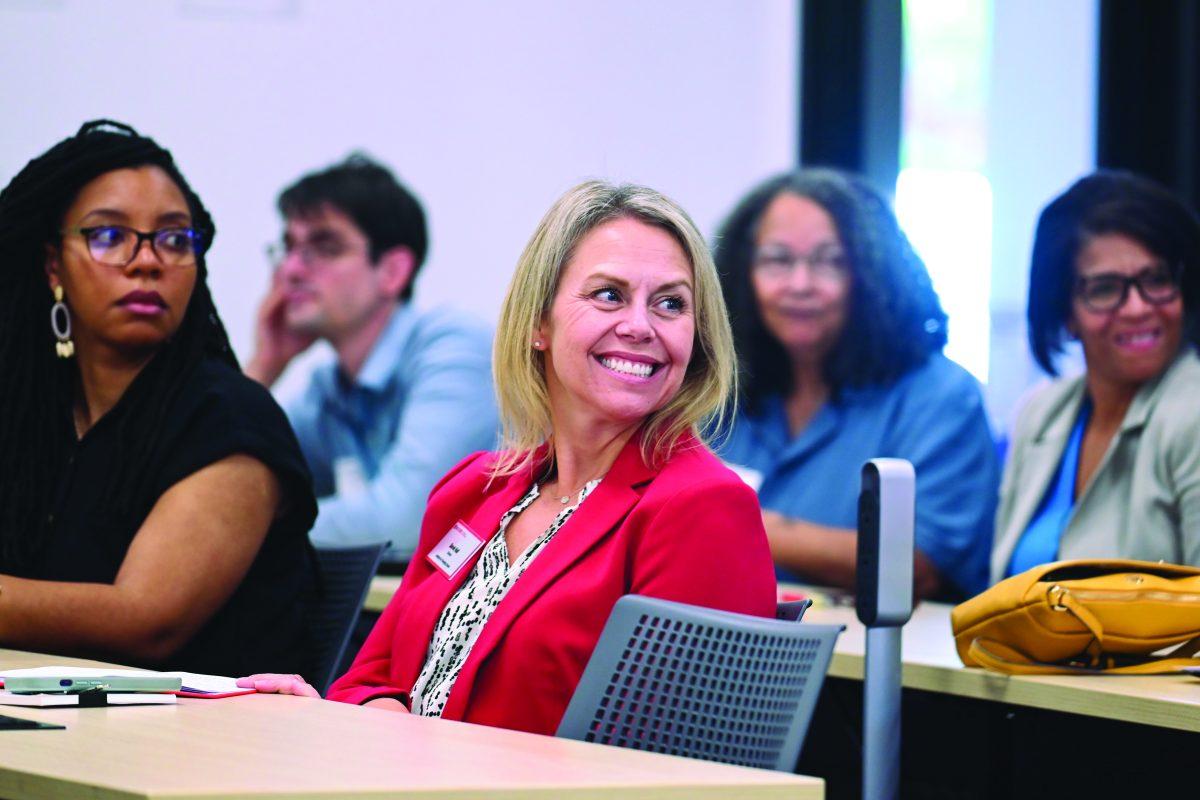NC State’s fifth annual Energy Week began Sept. 30, with events highlighting the University’s energy use, research and opportunities in shaping a clean energy future.
This year’s line-up included on-campus events like research competitions, showcases of art and electric vehicles, building tours, an introduction to the sustainable labs program, a workshop and a conversation with Henry McKoy.
McKoy is the senior advisor to the undersecretary for the U.S. Office of Science and Innovation, where he works on community-based innovation through the National Laboratory system. The fireside chat focused on exploring the future of clean energy and its impact on our environment.
“Life as a whole has been driven for the last century by fossil fuels, which support economic growth, but have also created greenhouse gas emissions that have wreaked havoc on the environment,” McKoy said. “The idea of clean energy is finding a way to create energy that powers cars, homes, corporations and manufacturing that doesn’t utilize fossil fuels, or dirtier fuels, but instead looks at things that are renewable.”
For many non-STEM majors, sustainability usually refers to recycling and limiting plastic bag usage; however, the social goal extends beyond those practices. McKoy approaches sustainability as a standability form, where Generation Z’s work today impacts Generation Alpha and subsequent generations.
“I’ve always connected sustainability to the ability of something to persist and sustain over time,” McKoy said. “I was working on something earlier and thinking about an indigenous saying that is about living your life to support seven generations in front of you. This notion that it’s not just about living and experiencing now at this moment, but what are we going to be leaving to those behind us?”
The Business Sustainability Collaborative, an academic initiative in the Poole College of Management, organized the chat with McKoy. Malhar Shah, the founder and CEO of microWatt Energy and NC State alum, facilitated the discussion. According to Rachel Haynes, the manager of the Business Sustainability Collaborative, the initiative sought McKoy to highlight innovation within the energy industry.
“He embodies ‘Think and Do’ with everything he’s worked on,” Haynes said. “He’s responsible for dispersing a large sum of federal funds to various programs. Hearing about his career path leading up to his current role shows our students that the path is long, but it can lead to really amazing outcomes where you can have impacts on building a more sustainable future, especially in clean technology.”
The Business Sustainability Collaborative teaches a more inclusive model of sustainability through a holistic lens. The model is commonly referred to as a triple bottom-line approach that includes people, planets and profit. A Certified B Corporation, which signals a company meets a high standard of social and sustainability impact in accordance with students’ future businesses, is also taught. Students from all disciplines are welcome to attend any events.
Sustainability is one of NC State’s core values. According to Lani St. Hill, communications and engagement coordinator for the University Sustainability Office, the University continues to make progress in sustainability efforts by tracking greenhouse gas emissions, creating and implementing sustainable courses and advancing research through the Sustainable Labs program.
“Climate affects everyone, and climate is an energy mission, so part of the University’s mission is to tackle global challenges and that is done through research and the development of innovative ideas and implementing solutions on campus,” Hill said. “Sustainable labs that will tackle energy use but also look at water conservation and waste minimization and look at purchasing and helping people who work in labs.”
Practicing sustainability in the community is not an overnight fix, but with gradual steps any member can make a difference off and on campus. There are many different and easy approaches to sustainability like following graphic guidelines on most University-owned trash and recycling bins, choosing to bike or ride the Wolfline and thrifting clothes, books and household items.
More importantly, attending and participating in sustainable-focused events and organizations on campus goes a long way. Research what items your local recycling center is currently accepting. Lastly, advocacy is the community’s best friend.
“As young voters, who can elect people at the local, state and national levels, be very clear that you know the kind of people that you want in leadership roles,” McKoy said. “Like every generation, I hope that the next generation will do everything they can to create a better world for the next, so you have to pick up the mantra, take the relay baton and keep running this race and make sure your voice is heard.”














